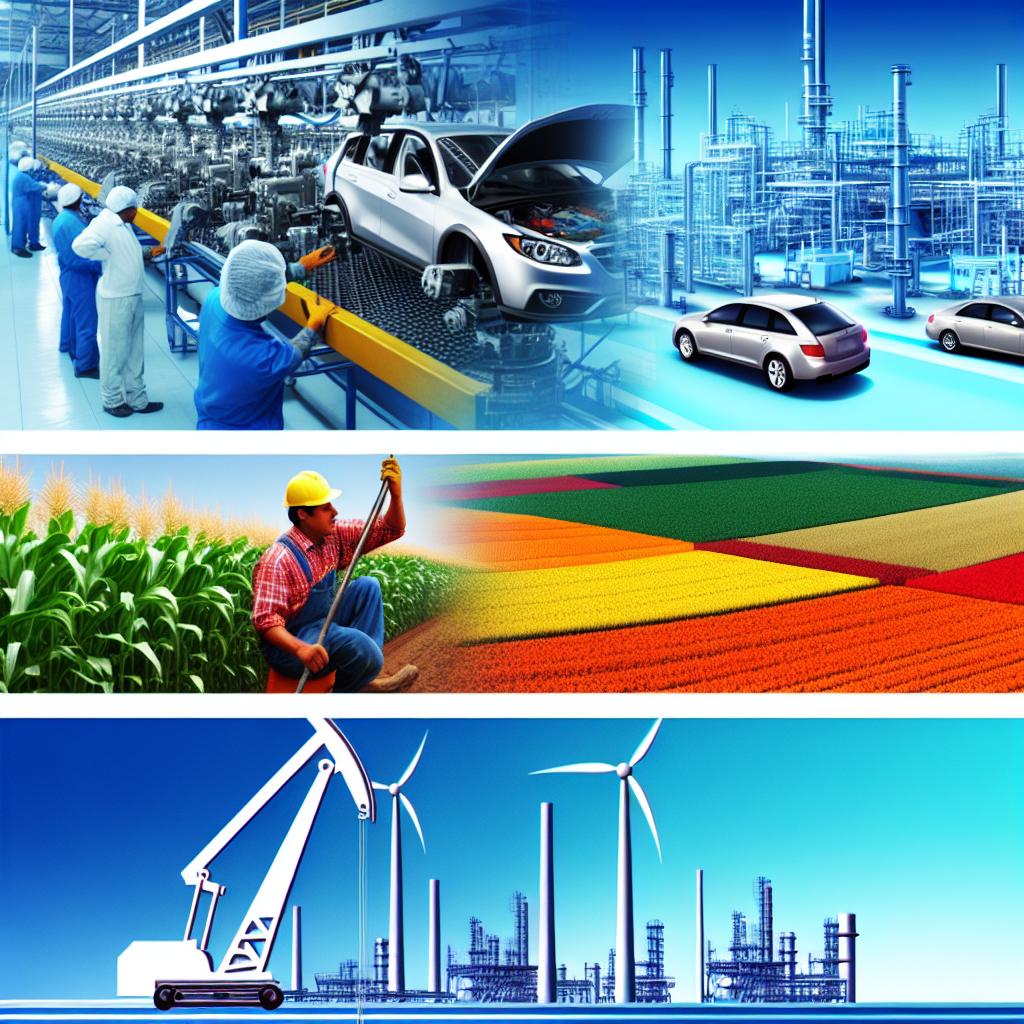Automotive Industry
The automotive industry in Mexico is a crucial pillar of the national economy, making substantial contributions to both employment and export revenues. Within Latin America, Mexico is the leading automobile producer and ranks as the seventh largest globally. This significant position is attributable to several factors that enable Mexico to play a vital role in the global automotive supply chain.
A key factor contributing to Mexico’s success in the automotive sector is its strategic geographical position and its extensive network of trade agreements, most notably the United States-Mexico-Canada Agreement (USMCA). These trade agreements facilitate seamless integration of automotive companies into the global supply chains by reducing trade barriers and enhancing market accessibility.
In addition to favorable trade agreements, Mexico hosts numerous large production facilities established by major international manufacturers. Companies such as Ford, General Motors, and Nissan have set up significant operations in Mexico, drawn by the country’s competitively priced labor market, robust manufacturing infrastructure, and proximity to major North American markets. These facilities contribute significantly to job creation and skill development within the local workforce.
For those interested in exploring more details, the Ministry of Economy provides extensive resources and information regarding Mexico’s automotive industry.
Electronics and Electrical Appliances
Another prominent industry in Mexico is the electronics and electrical appliance sector, underscoring the country’s status as a major electronics producer in North America. This industry is particularly recognized for its production capabilities in manufacturing televisions, computers, and communication devices.
The electronics sector benefits significantly from several advantageous factors. Mexico boasts a well-established infrastructure that supports large-scale manufacturing and distribution, making it an appealing location for multinational corporations looking to extend their manufacturing capacities. Furthermore, competitive labor costs in Mexico make production economically viable for many companies, which leads to the attraction of major global players like Samsung and LG.
The Mexican government has been proactive in fostering innovation within this sector by supporting research and development initiatives. Numerous governmental programs are focused on enhancing the technological capacity and innovation potential of the electronics industry, ensuring the continued growth and global competitiveness of Mexico in this field.
Agriculture and Food Industry
Agriculture is a cornerstone of Mexico’s economy, playing a vital role in job provision and the sustenance of rural communities. The country is a major exporter of several agricultural commodities, including avocados, tomatoes, and berries, which are in high demand internationally.
The success of the agricultural sector is largely due to Mexico’s diverse climatic zones and fertile soils. These natural advantages enable the production of a wide range of crops and contribute to the strength and reliability of Mexico’s agricultural exports. In addition to primary agricultural production, the food processing industry has witnessed notable growth, aimed at adding value to raw agricultural products, thereby enhancing export revenues.
The symbiotic relationship between agriculture and food processing not only boosts exports but also supports local economies by creating employment opportunities in rural and semi-urban areas. The growth of these industries forms a backbone for economic stability and rural development in Mexico.
Petroleum and Mining Industries
Mexico’s rich natural resource endowment includes oil, gas, and a wide array of minerals, forming a critical component of its economic foundation. The petroleum industry is dominant, with Mexico being one of the top oil producers globally, managed largely by the state-owned company Pemex.
Even amidst challenges, such as fluctuating oil prices and the need for industry reforms, oil remains a significant energy source and revenue generator for Mexico. Recent reforms have aimed at opening up the industry to foreign investment, spurring modernization and enhancing efficiency.
In addition to oil, Mexico’s mining industry also contributes substantially to its economy, particularly through the extraction of silver, copper, and gold. These mineral resources are vital for both domestic industrial use and international trade, underscoring Mexico’s strategic importance in the global market for raw materials.
Tourism Industry
Tourism stands out as a major economic driver in Mexico, leveraging the country’s rich cultural heritage, picturesque landscapes, and extensive coastlines. Renowned tourist hotspots, including Cancun, Los Cabos, and Mexico City, are frequented by millions of international visitors annually.
The tourism industry benefits local economies by creating numerous jobs across hospitality, transportation, and service sectors. It is a significant contributor to national GDP and plays a vital role in socioeconomic development.
The Mexican government actively promotes tourism through various initiatives that aim to foster sustainable and inclusive development. By focusing on preserving cultural heritage and protecting natural environments, the government seeks to ensure the long-term viability and resilience of the tourism sector.
Conclusion
Mexico’s economy is characterized by its diversified nature, with key contributions from the automotive, electronics, agriculture, petroleum, mining, and tourism sectors. This diversity facilitates economic resilience and presents numerous growth opportunities across various industries.
Each sector plays a unique role in strengthening economic stability and prosperity, positioning Mexico as an influential player in both regional and global markets. With ongoing modernization and comprehensive diversification efforts, the future economic landscape of Mexico is poised for further growth and development, reinforcing its standing as a dynamic and robust economy.







